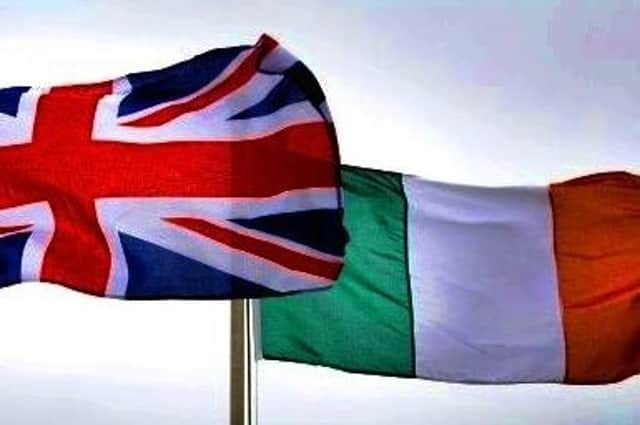Poll shows majority in Republic unwilling to make Irish unity more palatable to unionists


The survey, carried out by Red C on behalf of the Sunday Business Post, records that almost three-quarters of those polled would rule out any changes to the Irish tricolour, and only 35% would agree to a new national anthem to accommodate the sensitivities of those from a unionist background.
Other main findings were support for a united Ireland in the Republic, if a referendum took place tomorrow, would be 60%, and only 41% of people prepared to pay higher taxes as a result of Northern Ireland leaving the United Kingdom.
Advertisement
Hide AdAdvertisement
Hide AdThe poll also included questions on whether unionists should be guaranteed positions in future Irish government cabinets, and other measures designed to make such a dramatic switch of allegiance more palatable.
One of the 10 proposals in the survey stated: “I would be willing to rejoin the Commonwealth to help support a united Ireland.”
Only 23% of respondents said they would be happy for that to happen.
In response, DUP leader Sir Jeffrey Donaldson said the poll outcome “debunks the idea that a united Ireland is inevitable”.
Advertisement
Hide AdAdvertisement
Hide Ad“Let’s make Northern Ireland work,” the Lagan Valley MP tweeted.
Sir Jeffrey’s tweet also stated: “60% support for united Ireland remarkably low for Republic. Drops to just 41% if people have to pay higher taxes which of course they will to fund public services, pensions and replace the NHS in Northern Ireland.”
His comments led to a Twitter exchange with the Fine Gael spokesperson on European affairs, Neale Richmond, who said: “It is my belief that Brexit will continue to make the case for unity strong. You will disagree and we’ll do that amicably.
“Immediately there is indeed much to work on but they’re not exclusive. Resuming the North/South institutions would be a good start for everyone.”
Advertisement
Hide AdAdvertisement
Hide AdThat led Sir Jeffrey to reply: “We will no doubt disagree but concur we should do so amicably. Hopefully we can sort out the problems linked to the protocol so that normal business east-west and north-south can resume.”
The largest support for any of the 10 hypothetical proposals was for the setting up of “an island of Ireland Citizens Assembly” to “build consensus on the best way to achieve a united Ireland”.
That attracted 65% support in favour with only 18% against (and 17% don’t know).
Sinn Fein has pledged to make a citizens assembly a main priority if it gets into government in the Republic following the next general election.
Advertisement
Hide AdAdvertisement
Hide AdThe was also relatively strong support in a belief that a referendum on the constitutional position of Northern Ireland will take place in the relatively near future.
The survey question stated: “I believe a referendum on a united Ireland will be held within the next 10 years.”
A total of 62% said they believed that to be the case, with 23% disagreeing (and 15% don’t know).
The was also similar support for “the [Irish] government to start planning for a united Ireland now.”
Advertisement
Hide AdAdvertisement
Hide AdThat attracted 62% in favour with 26% against and 12% don’t know.
Former taoiseach Bertie Ahern has called for a united Ireland referendum to be held in 2028 to coincide with the 30th anniversary of the signing of the Belfast (Good Friday) Agreement.
Current taoiseach Micheal Martin has already set up a shared island unit with a €1 billion budget for cross-border infrastructure.
The Sunday Business post poll also showed that women were more attached to the Irish tricolour that men, with 63% opposed to change compared to 59% of men.
Advertisement
Hide AdAdvertisement
Hide AdThe statement, “I would be willing to support the continuation of the power-sharing Northern Ireland Assembly in Belfast alongside the Dail in Dublin in a united Ireland,” was supported by 45% of respondents, with 32% against and 23% don’t know.
As the newspaper’s assessment of the poll pointed out, “the answers show stark divisions about the possible changes that might be needed to achieve [a united Ireland].”